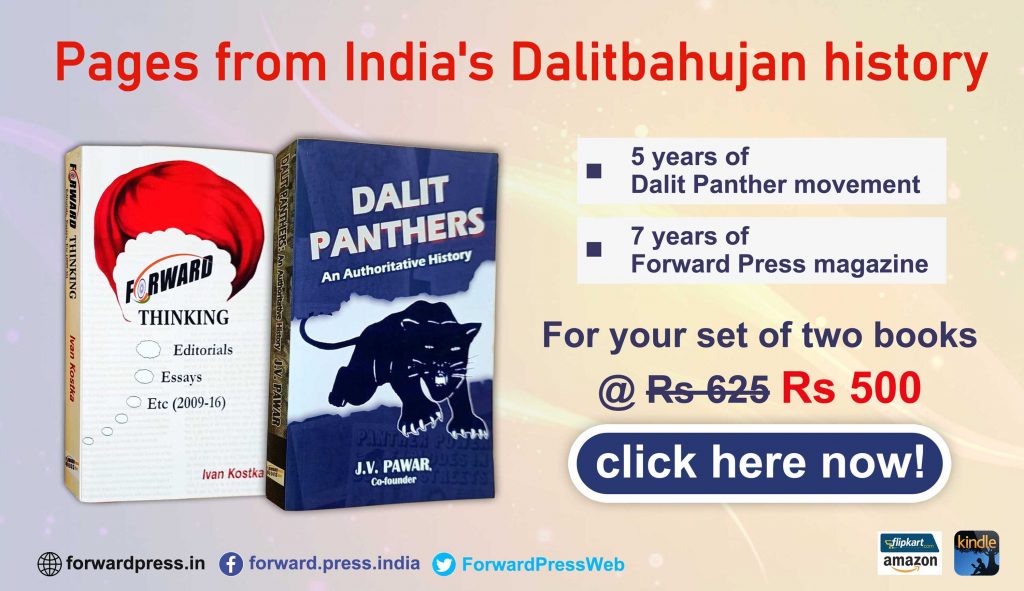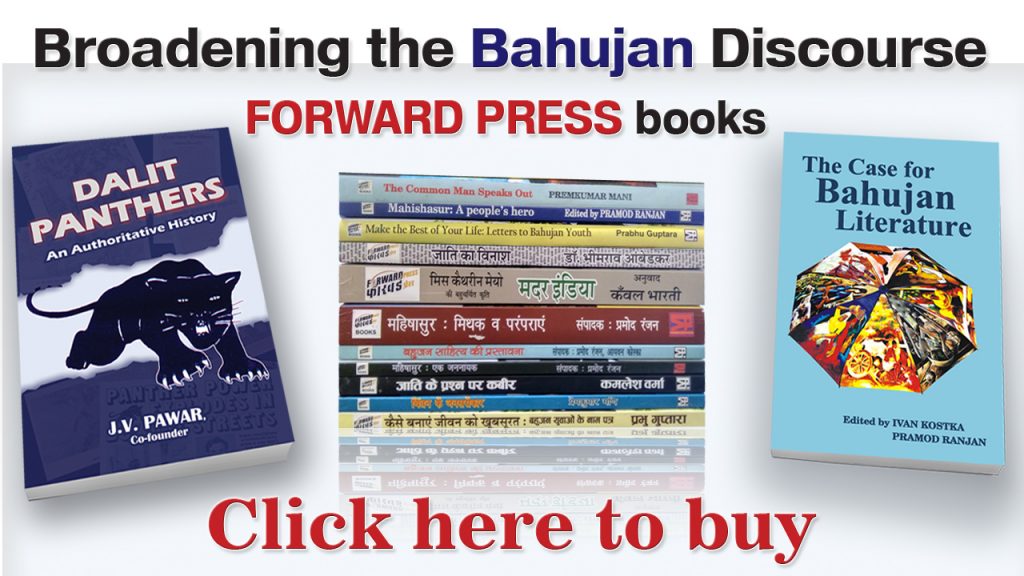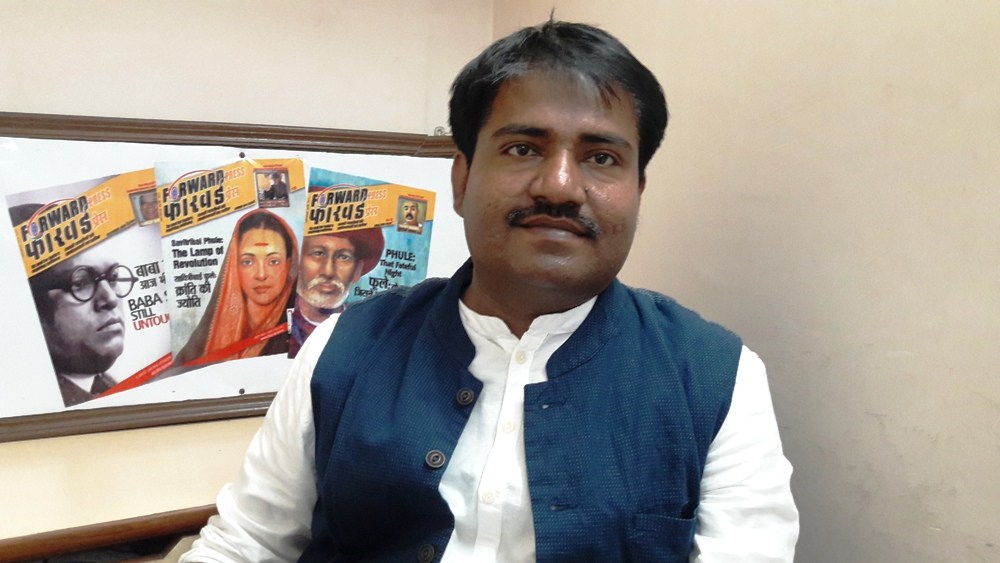The central government has accepted almost all the demands of the farmers, who have been agitating on the borders of Delhi for the past one year and 13 days. They have started returning to their homes. What role did the Dalits play in this movement? What have they gained or hope to gain from this movement? In an interview with FORWARD Press, Gurmukh Singh, a leader of the Zameen Prapti Sangharsh Samiti, Punjab, answered these questions. Edited excerpts of the conversation:
Please introduce yourself and your organization to our readers. Also, what are its objectives?
My name is Gurmukh Singh and the name of our organization is Zameen Prapti Sangharsh Samiti (ZPSC). I am a member of the zonal committee of the organization. Our organization raises issues related to land rights of the Dalits and other castes. We also fight to secure justice to farm labourers who are victims of oppression or violence.
When was the organization formed?
In 2014.
What are the current activities of the organization? What is your membership and where do you have a presence?
Our organization has around 10,000 members. It is confined to four districts of Punjab. It so happened that there was an incident in a village and we stood up in defence of the victim. By and by, we began working on the issues related to farm labourers and small farmers in different villages. Slowly, the organization grew. It is not as if some people got together and decided to form an organization for a purpose. It was the other way round. Our people were already working on the ground before they came together to form the organization. Our organization is working in the Sangrur, Barnala, Patiala, Malerkotla and Mansa districts of Punjab. We have a comparatively small presence in Mansa.
Why did your organization join the farmers’ protest? Was it because the laws would have harmed the farm labourers, too?
There were many reasons. For instance, the laws would have ended the mandi system and the Public Distribution System (PDS). There were many clauses that would have been detrimental to the Dalits and the labourers. Additionally, even the Rashtriya Swayamsevak Sangh (RSS) and the Bharatiya Janata Party (BJP) workers were unhappy with the laws, though they could not say anything openly. We believed that these fascist forces would harm us. That was why we decided to join the movement. It has been the culture in Punjab that whenever there is a struggle, people fight unitedly – they help each other. If the labourers face a problem, the organizations of the farmers help us. We return the favour if the organizations of farmers are involved in any struggle. It was in keeping with this culture that we decided to help them.
What is the Dalit share in farming in Punjab like?
Before the Green Revolution, the Dalits used to work the fields. With the advent of machines, however, the work became less and irregular. Now, these labourers were associated with farming. They could not have simply walked out of the farms and started working in industries. Moreover, the industrial sector is not that developed in Punjab, so they stayed back in the villages. They occasionally get work – during sowing of potato and sowing and harvesting of wheat, paddy and potato. They were not dependent on just that. You will ask why our organization was born in the villages. The answer is that the rural populace of Punjab is under great pressure. They are being ousted both from farming as well as industries. What will they do? Where will they go? We told them that if you had land, you would be able to go there. They liked the idea. They felt it would be helpful for them. Thus, they began joining our organization.

What is the extent of landlessness among the Dalits in Punjab? How many of them own agricultural land?
In Punjab, not more than two per cent of the Dalits own land. According to Census 2011, Dalits form 32 per cent of the population of the state. The figure today is estimated to be around 35 per cent. But their share in farm land is between 1.5 and 2 per cent. In Punjab, farm labourers and Dalits are synonymous. Who are farm labourers? They are Dalits. Who are Dalits? They are farm labourers.
What are the provisions regarding minimum wages for farm workers in Punjab?
The central and the state governments have fixed different minimum wages. But they are only on paper. Normally, local labourers demand higher wages while the migrants are ready to work for virtually anything. The migrants want work and the farmers want cheap labour. It is a mutually beneficial arrangement. Punjab had bonded labourers called Siddis. Earlier, they used to be mainly Dalits. With time, however, they were pushed out of work as migrants were ready to work on lower wages. In migrant workers, the farmers got cheap labour. Hence, they stopped hiring Dalits.
Has the farmers’ movement brought the Jat Sikhs and the Dalit Sikhs closer?
There is nothing to suggest this. But what is certain is that the success of the movement has sent out a clear message to the country that if the people agitate unitedly, they can win. That is a lesson for the Dalits. Earlier, the general perception in Punjab was that agitations, protests and marches don’t serve any purpose. The success of the farmer’s movement has proved that this perception is wrong.
Why has the farmers’ movement not led to social unity? Why has it not reduced social distancing? What is the share of Dalits in the top leadership of the Samyukta Kisan Morcha (SKM)?
It is zero. There are no Dalits in the top leadership of the SKM. It is a front of landowning farmers. None of them is a Dalit. Some said, “Why should we back the farmers? Let them keep our demands at the centre of their movement.” But we said, “How can we do that?” Supposing there is a movement. How can we say that we will support it only when our demands are included? Suppose railway workers are engaged in a struggle. Can we tell them that we will support you only if you include the demands of the farmers in your agenda? This is not done. We supported the movement on issues and the movement has been a big success.
Now that the farmers’ movement has met with success, will other organizations like yours negotiate with the farmers to ensure that farm labourers get fair wages?
It is not practical to assume so. The SKM is not an organization based on ideology. It is a conglomerate of all kinds of people. At one time, the ZPSC launched a big protest on the issue of the murder of a Dalit in a village. Farmers came out in our support. But when we were holding a demonstration they opposed us in Karnal. They said what we did was wrong and that we should be arrested. Today, we are fighting together. They were against us but we are with them today. So, how can we say that they will support us? We can’t say that. The SKM is not based on any ideology.
The farmers are still adamant on the issue of MSP. What, in your view, are other such issues that should be considered?
The struggle was launched on certain issues. Later, other issues got added. When they came to Delhi from Punjab and Haryana, they realized that their struggle couldn’t be confined to Punjab or Haryana alone. They would have to take other farmers along. Then, the issue of MSP came up. Then the matter of the arrests of farmers was also added. Presently, their basic demand has been met. There is the issue of the MSP but it requires a big struggle. It seems that this movement will conclude without the demand related to MSP being fulfilled.
Besides demanding a law on MSP, shouldn’t the farmers also demand laws for the protection of farm labourers, tenant farmers, those who benefit from the government purchase and those who don’t get compensation?
That is right. Such laws are needed. There is demand for an MSP regime in Punjab. Farming should not be capitalistic. But you will see that PDS is not being implemented properly here. Things of daily use should also be added to it. This will become possible only if the farmers and the labourers fight jointly. You can’t achieve all this sitting at home. No one will get anything without a struggle. People think that the farmers will struggle and they can stay at home and reap the benefits.
Do you think the Dalits and the farmers will join hands to fight for their rights?
The farmers now believe that they should take part in a struggle to move forward. How much they succeed will depend on their leadership. The same is true of the Dalits. The basic thing we need to understand is that in Punjab, while the farmers depend on agriculture for their livelihood, the Dalits are not entirely dependent on farming. They are involved in other means of livelihood, too. The struggle will become effective only if besides farming their other issues are also taken into consideration.
(Translation: Amrish Herdenia; copy-editing: Anil)
Forward Press also publishes books on Bahujan issues. Forward Press Books sheds light on the widespread problems as well as the finer aspects of Bahujan (Dalit, OBC, Adivasi, Nomadic, Pasmanda) society, culture, literature and politics. Contact us for a list of FP Books’ titles and to order. Mobile: +917827427311, Email: info@forwardmagazine.in)
The titles from Forward Press Books are also available on Kindle and these e-books cost less than their print versions. Browse and buy:
The Case for Bahujan Literature
Dalit Panthers: An Authoritative History







